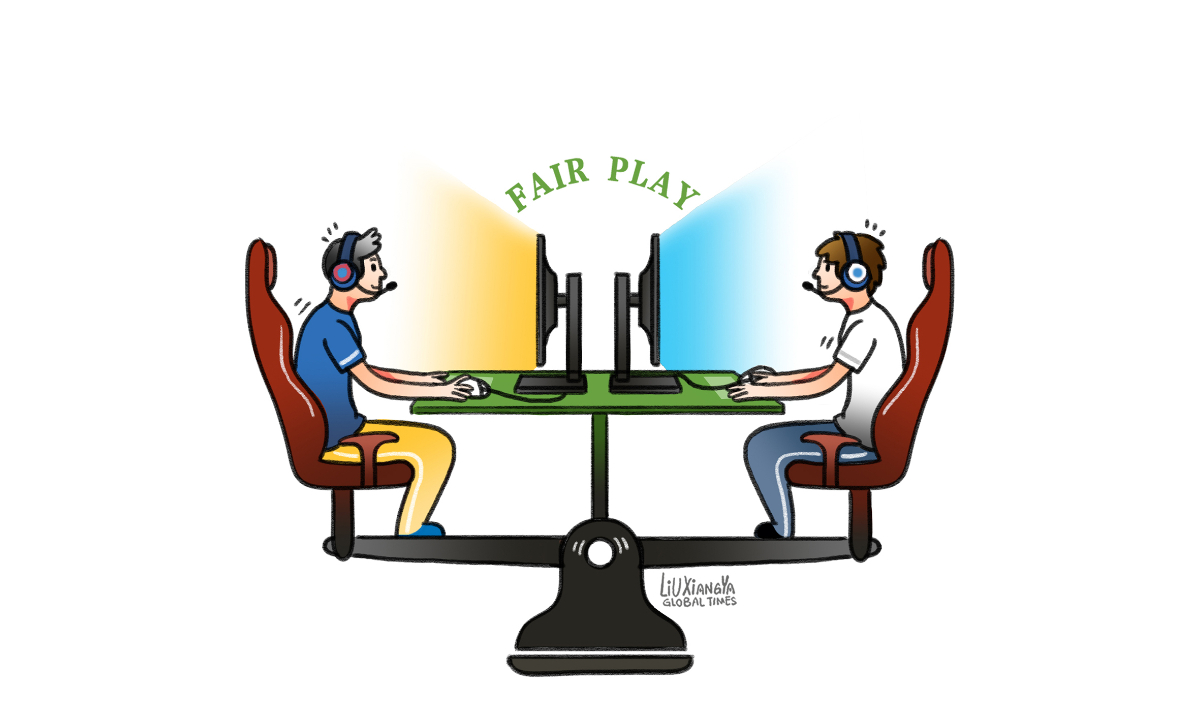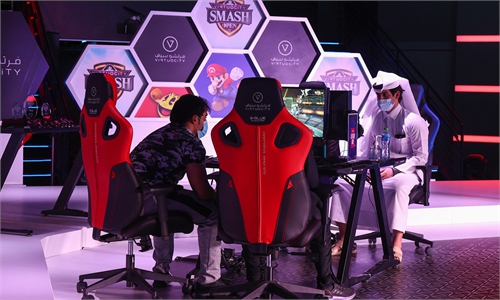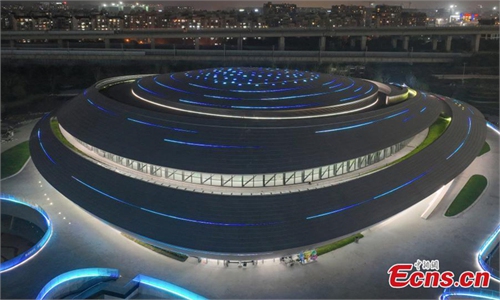ARTS / CULTURE & LEISURE
Hangzhou can ensure fair play for esports and other events

Illustration: Liu Xiangya/Global Times
The upcoming Hangzhou 2022 Asian Games have garnered significant attention, especially among esports enthusiasts as this will mark the sport's debut as a medal event in a multi-sport tournament.Esports, a form of competitive video gaming, has experienced tremendous growth and popularity worldwide in recent years. As athletes from Asia prepare for the competitions, a recent comment made by a South Korean esports official has raised some concerns.
The concerns revolve around Seoul SK Knights general manager Oh Kyung-sik, former executive director of the South Korean esports association.
He was quoted by South Korean gaming industry media Inven as saying that athletes should be prepared for "possible unfair treatment" at the Asian Games.
The comment quickly raised concern, even outrage, from Chinese esports fans and industry insiders, as many Chinese fans easily and readily recalled South Korean players' unfair treatment of their opponents at many international competitions.
Some fans brought up incidents such as the refereeing at the 2002 FIFA World Cup that helped South Korea win against soccer giants Italy in round 16, using wind from air conditioners to alter indoor wind conditions to give advantages to the South Korean badminton team during the 2014 Incheon Asian Games, as well as South Korean short track speed skaters' misbehavior on the ice during the 2018 Pyeongchang Winter Olympic Games.
The essence of sports, whether traditional or digital, embodies values such as friendship, unity, peace and fairness.
Each participant, regardless of their role, has the responsibility to uphold the values of integrity and sportsmanship. Only by doing so can we ensure the sustainable growth and success of esports as it continues to gain recognition on the global stage.
The comment by Oh is clearly detrimental to the long-term development of an emerging sport and goes against the very essence of the spirit of sports.
Unlike traditional sports, esports competitions take place in virtual environments, which present unique challenges in maintaining fair play.
The comment by Oh has undermined all the efforts that local organizers have made to safeguard fair play and the integrity of the Asian Games, such as collaborating with game developers to establish standardized rules.
To sustain its development and attract a wider audience to esports, fair play is paramount. It also takes commitment to fair play and sportsmanship to be a professional player.
Ironically, esports competitions held in South Korea have a history of unfairness, such as the sudden electricity outage that occurred when a Chinese team was ahead of a South Korean team during a League of Legends invitational final in 2012 and the sudden rule changes for a Player Unknown's Battlegrounds league after the league started in 2017.
There is less than four months left before esports makes its official debut at the Asian Games. We are confident that Hangzhou organizers can and will ensure fair play, which is vital for the future development of esports and other events.
Oh's motive for making such an absurd comment remains unknown, but using despicable means to cast aspersions on the intentions of upright people will never work out.
It is always easier to find excuses and blame someone else when you do not perform well at competitions. Perhaps, accusations of "being treated unfairly" is the go to excuse in South Korea sports.


